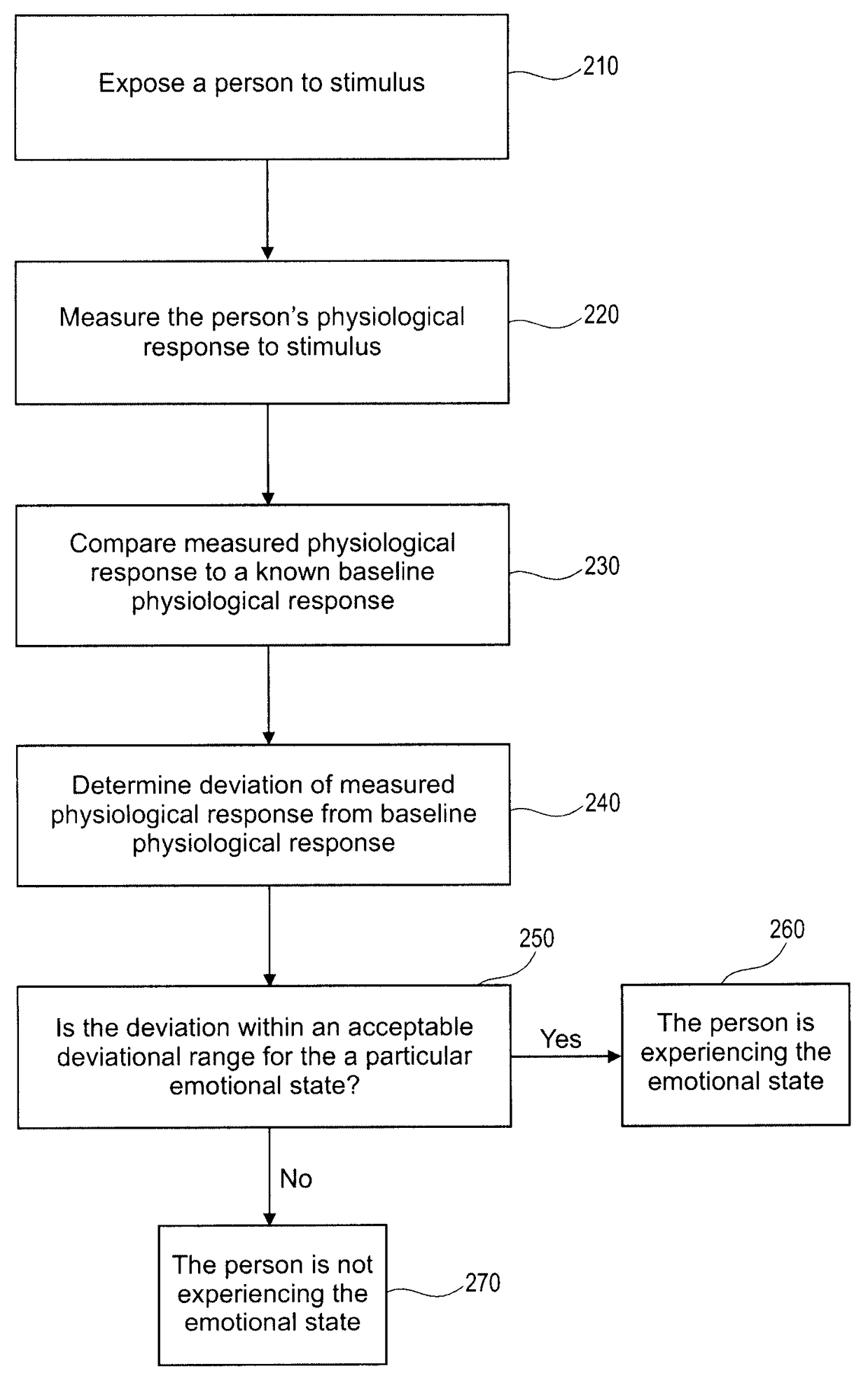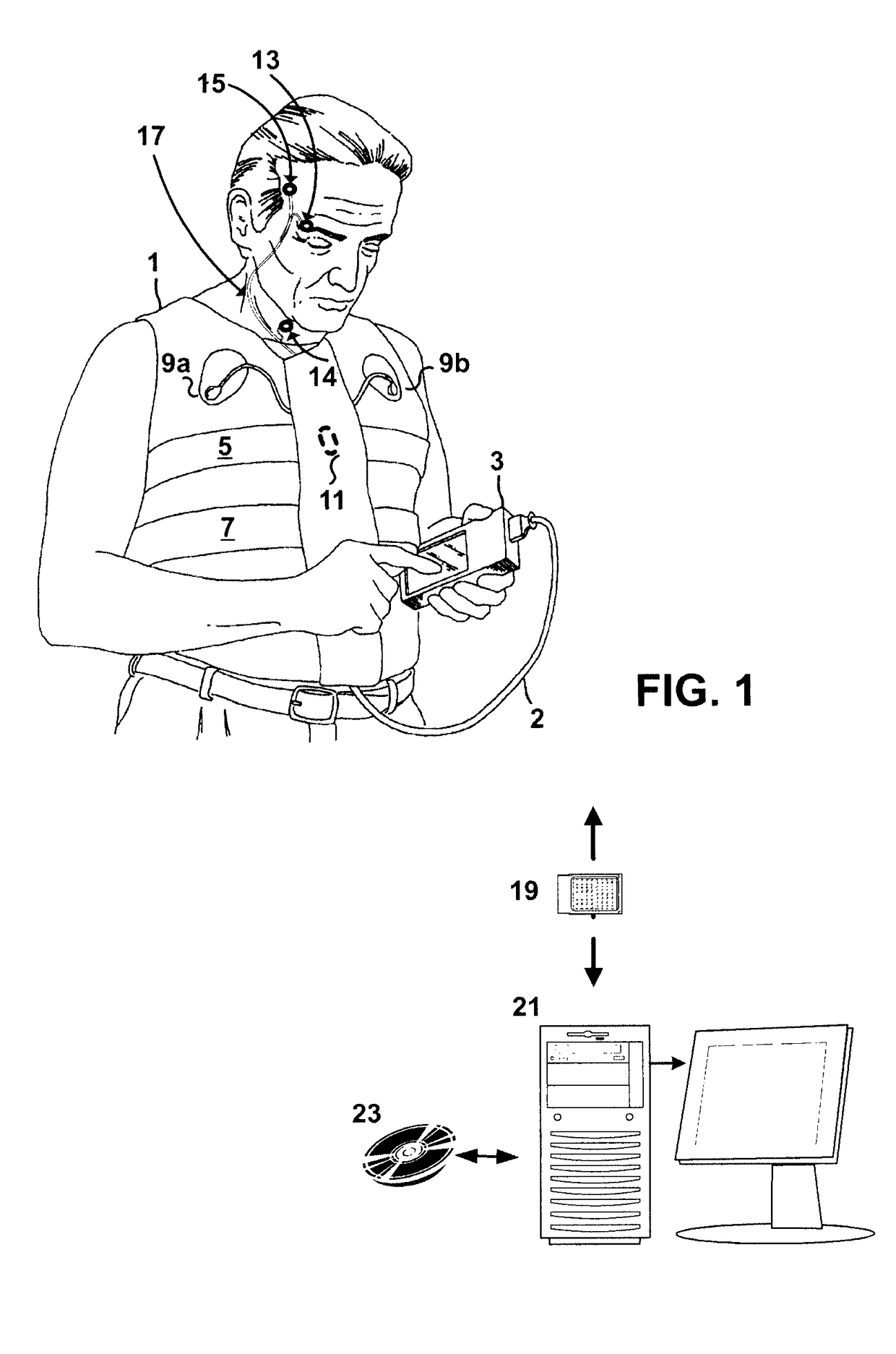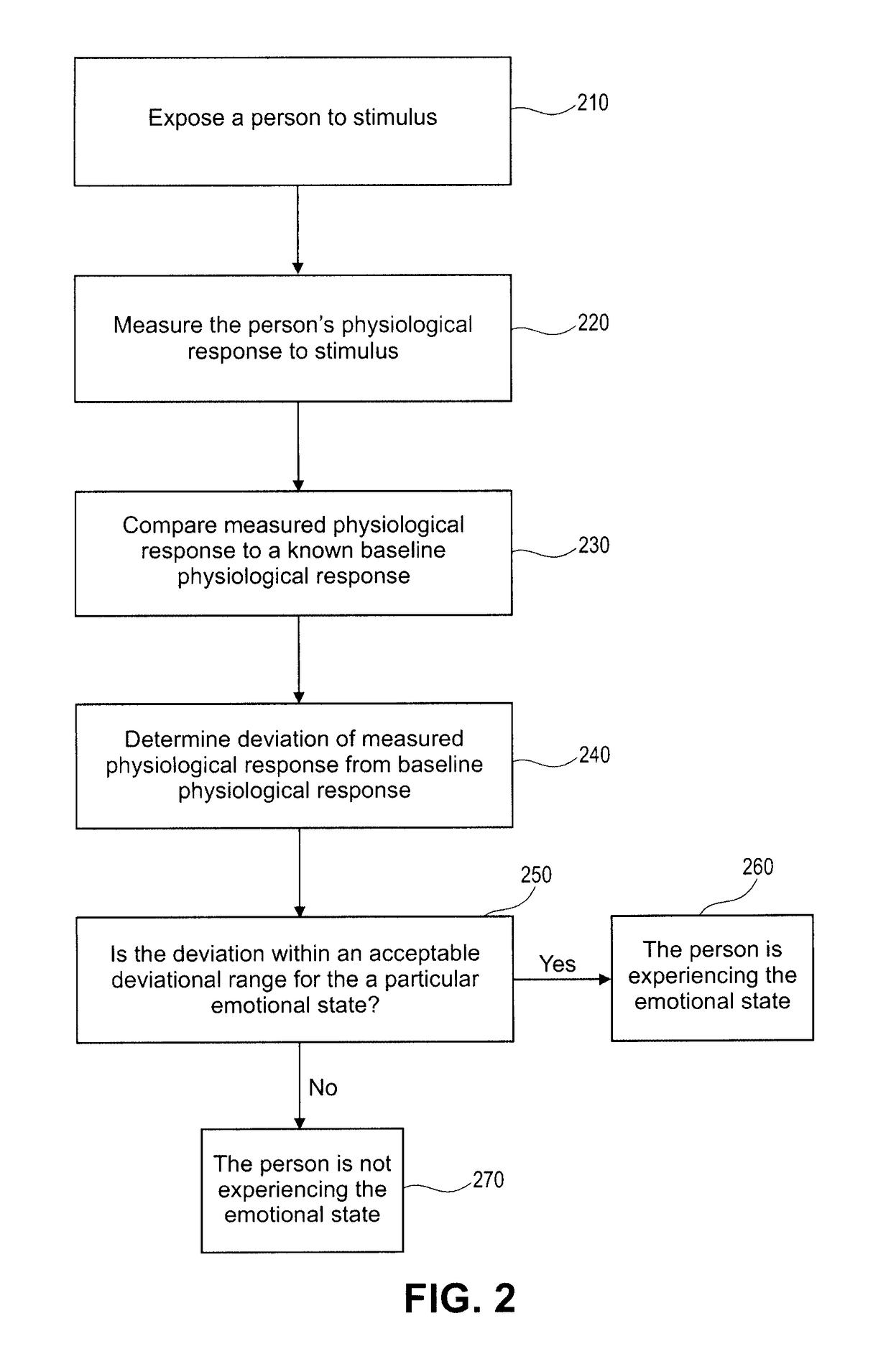Identification of emotional states using physiological responses
a physiological response and emotional state technology, applied in the field of real-time physiological monitoring, can solve the problems of limited approach and inability to achieve real-time monitoring, and achieve the effect of removing potentially confounding factors
- Summary
- Abstract
- Description
- Claims
- Application Information
AI Technical Summary
Benefits of technology
Problems solved by technology
Method used
Image
Examples
example 1
Measured Physiological Responses for an Actress
[0091]FIG. 6 shows real-time monitoring data for ventilation rate (“Vent”), tidal volume (“TVI”), heart rate (“HR”), and accelerometry (“AccM”) sensors for an actress (“subject”) who wore the LIFESHIRT® during a theatrical performance. During the monitoring period, the subject was initially backstage before she made her entrance on stage. The subject, however, missed her entrance queue, and the monitored data reflect her physiological responses accordingly.
[0092]For example, period 930 indicates the time when the subject was sitting backstage awaiting her entrance. Her accelerometer reading is minimal, and her heart rate was steady and stable at about 58 beats / min over this period. This data can be used as a baseline physiological response or fingerprint during exposure to a neutral stimulus when the subject is calm and at ease.
[0093]As her onstage entrance time approaches, her ventilation rate, tidal volume, and heart rate all begin to...
PUM
 Login to View More
Login to View More Abstract
Description
Claims
Application Information
 Login to View More
Login to View More - R&D
- Intellectual Property
- Life Sciences
- Materials
- Tech Scout
- Unparalleled Data Quality
- Higher Quality Content
- 60% Fewer Hallucinations
Browse by: Latest US Patents, China's latest patents, Technical Efficacy Thesaurus, Application Domain, Technology Topic, Popular Technical Reports.
© 2025 PatSnap. All rights reserved.Legal|Privacy policy|Modern Slavery Act Transparency Statement|Sitemap|About US| Contact US: help@patsnap.com



